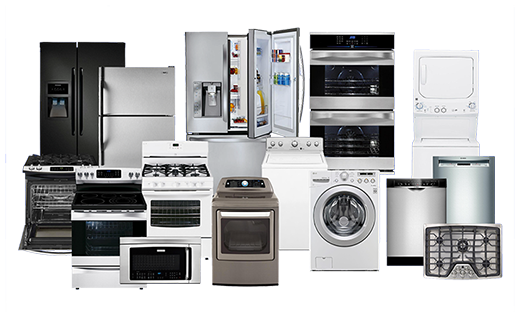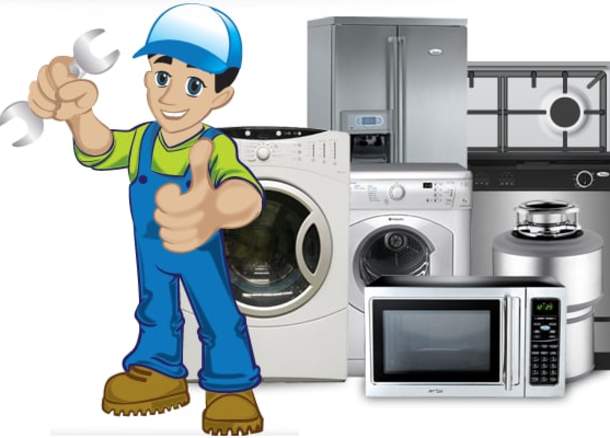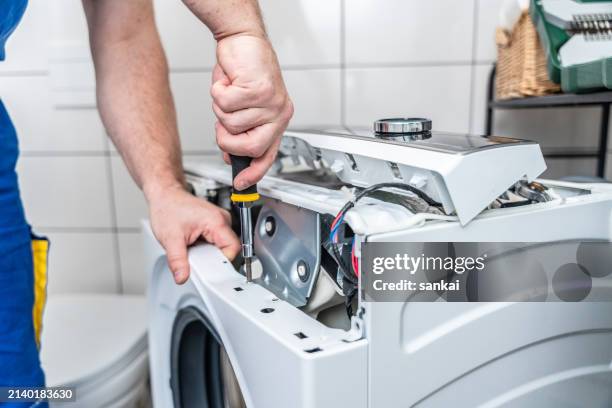Pros, Cons & Best Practices – Dependable Refrigeration & Appliance Repair Service Washing Machine Repair
Pros, Cons & Best Practices – Dependable Refrigeration & Appliance Repair Service Washing Machine Repair
Blog Article
The Ultimate Overview to Comprehending Appliance Repair Work at Home
When your refrigerator stops cooling down or your oven declines to warm, it can feel overwhelming. Recognizing appliance repair work in the house can save you time and money. You'll discover to identify signs and symptoms, utilize necessary devices, and follow a methodical troubleshooting procedure. Yet before you begin, there are important security preventative measures you require to take right into account. What are the most common problems, and just how can you fix them? Allow's check out the basics.
Typical Device Troubles and Their Signs
When your appliances start acting up, it's vital to acknowledge the indicators at an early stage. Disregarding them can bring about larger problems and costly repair services. If your fridge isn't cooling down appropriately, you may discover cozy places or condensation forming. This could suggest a failing compressor or a blocked vent.Your dish washer might show problems via dirty meals or unusual noises during cycles. If you hear grinding or clanking, it's time to investigate.A cleaning equipment that won't spin or drain can leave you with soaked laundry, suggesting a clogged up drainpipe or a malfunctioning pump.Lastly, if your oven's temperature seems off or it takes permanently to preheat, you may be handling a damaged thermostat. By remaining sharp to these symptoms, you can address issues prior to they escalate into significant fixings.
Essential Tools for Appliance Repair Work
When you're tackling device repair work at home, having the right devices is important. Basic hand devices like screwdrivers and pliers will help you disassemble and deal with numerous home appliances, while electrical screening tools guarantee you're functioning safely with circuitry. Allow's review what you require to obtain started on your repair work trip.
Basic Hand Devices
Having the right tools is necessary for reliable appliance repair in your home. Begin with a dependable screwdriver set, consisting of both flathead and Phillips types, as screws are common in home appliance setting up. Pliers are likewise important; they assist with gripping, turning, and reducing cords or little components. A set of needle-nose pliers can get to difficult situations easily. You'll require a good flexible wrench for tightening up or loosening nuts and screws. An energy knife comes in handy for puncturing packaging or insulation. Do not fail to remember a tough workbench or surface to safely organize your devices and components. With these fundamental hand devices, you'll be well-prepared to tackle most home appliance repairs that come your way.
Electrical Testing Tools
Together with standard hand devices, electrical testing devices play an essential duty in device repair service. These devices help you identify electric issues and assurance home appliances function safely. A multimeter is important; it determines voltage, present, and resistance, permitting you to pinpoint troubles rapidly. A non-contact voltage tester is another must-have, letting you identify online wires without making direct get in touch with, boosting your security. Clamp meters are great for measuring present flow in cables without separating them, saving you time and effort. In addition, circuit testers can quickly inspect if electrical outlets are functioning properly. By utilizing these tools, you'll enhance your troubleshooting process and boost your fixing skills, making home appliance upkeep a great deal simpler.
Step-by-Step Guide to Diagnosing Home Appliance Issues
When your device breaks down, it can be frustrating, yet diagnosing the issue does not need to be overwhelming. You'll learn to recognize usual problems and use efficient fixing strategies. Let's stroll with the actions to obtain your home appliance back in working order.
Common Home Appliance Issues

Fixing Techniques Explained

Fixing Significant Cooking Area Home Appliances: A Closer Look
Have you ever asked yourself exactly how to deal with common issues with your cooking area home appliances? Repairing major kitchen area appliances like refrigerators, stoves, and dishwashing machines can be simpler than you believe. Begin by determining the problem-- whether it's a refrigerator not cooling down or an oven that won't heat. Often, an easy reset or checking the source of power can fix the issue.For fridges, tidy the condenser coils and inspect the door seals. If your stove's not home heating, evaluate the burner and thermostat. Dishwashers could simply require a clean filter or a reset to obtain them back at work. Always unplug the appliance before diving into repair work to ensure your safety.Don' t forget to consult the user handbook for certain repairing ideas connected to your model. With a little bit of perseverance and the right devices, you can with confidence take on device fixings and save cash in the procedure!

Repairing Laundry Appliances: Tips and Techniques
When your laundry appliances begin breaking down, it can really feel frustrating, however fixing them does not need to be a trouble. Begin by inspecting the power supply. Validate the device is connected in and the electrical outlet is functioning. Next off, examine the door or cover button; a faulty button can prevent the maker from operating.For washing machines, if it's not spinning, examine for unbalanced tons. Rearranging the garments could resolve the problem. If your clothes dryer isn't heating, clean the dust filter and check the air vent for blockages.Listen for uncommon noises; they can indicate a problem. If your device is dripping, check the hoses for fractures or loose connections. File any type of mistake codes displayed on electronic displays, as they can lead you in identifying the concern. Consult the user guidebook for details troubleshooting suggestions associated to your version.
Safety Preventative Measures to Take Throughout Services
Prior to you start any type of appliance repair work, it's necessary to focus on safety to prevent mishaps or injuries. First, unplug the device or shut off the circuit breaker to guarantee no power reaches it while you work. Usage shielded tools to decrease i loved this the danger of electrical shock. Use safety and security goggles and gloves to safeguard yourself from sharp sides or debris (Lg Dryer repair near me Dependable Refrigeration & Appliance Repair Service).Make certain your work area is tidy and well-lit, so you can see what you're doing. Maintain youngsters and pets far from the area to avoid interruptions and prospective dangers. If you're handling gas devices, be extra mindful; check for leakages prior to proceeding.Take your time, and do not hurry with repairs. If you really feel unpredictable regarding any type of step, it's much better to pause and research study than to guess. Adhering to these precautions will assist produce a much safer environment for your DIY device repair project
When to Call a Professional for Aid
Just how do you understand if it's time to call a specialist for device repair work? If you've tried standard troubleshooting without success, it's a clear indicator. For circumstances, if your home appliance still will not start or reveals uncommon noises after resetting it, do not wait to look for specialist help.When you notice leakages, smoke, or burning scents, prioritize safety and call a professional immediately. These issues can lead to even more significant damages or pose threats to your home.Also, if your appliance is under warranty, contacting a professional is commonly the ideal course. They can ensure that repair work won't nullify your service warranty, saving you cash in the long run.Finally, if you're unsure or awkward with intricate repairs, it's sensible to leave it to the specialists. Bear in mind, taking on difficult issues without the best proficiency can cause pricey mistakes. Trust fund a specialist when in uncertainty!
Regularly Asked Concerns
Just How Can I Stop Home Appliance Issues in the Future?
To stop appliance problems in the future, you need to do normal maintenance, look for wear and tear, tidy filters, and prevent overloading. Staying positive will certainly help expand their life-span read here and keep them running smoothly.
What Are one of the most Usual DIY Home Appliance Fixing Mistakes?
You may forget security precautions, avoid troubleshooting actions, or utilize inaccurate tools when trying DIY appliance repairs. Hurrying the process or disregarding producer standards can bring about even more substantial concerns and costly blunders. Keep person and educated!
How Do I Know if a Component Needs Substitute?
You can tell if a component needs substitute by looking for uncommon sounds, leakages, or inconsistent efficiency. If the appliance has a hard time to operate appropriately or reveals visible damages, it's likely check my blog time for a substitute.
Can I Utilize Generic Parts for Device Services?
Yes, you can utilize generic parts for appliance repair services, yet identify they're compatible - Dependable Refrigeration & Appliance Repair Service Dryer repair near me. Generic components might conserve you cash, yet they might affect efficiency or long life, so weigh your alternatives carefully prior to deciding
What Warranties Cover Appliance Repair Works?
Most appliance service warranties cover repair work for making defects, yet they often omit damages from abuse. Check your warranty terms meticulously, as some might require utilizing licensed technicians and original parts for protection to remain legitimate.
Report this page